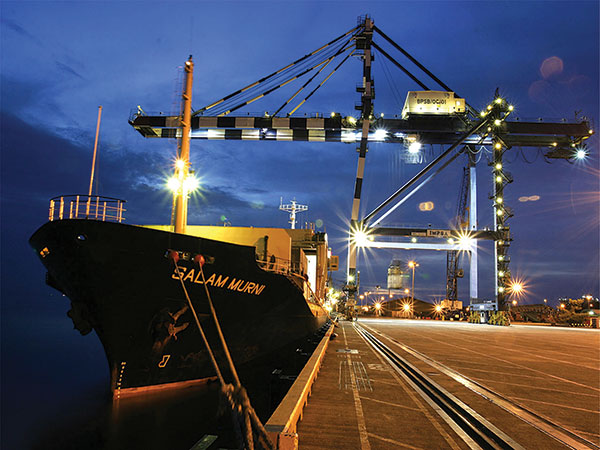
There’s no timeframe yet for the implementation of the Cabotage Policy exemption in Sabah and Sarawak. File Photo
KOTA KINABALU: The government has not set any timeframe for the implementation of the Cabotage Policy exemption for Sabah and Sarawak, the Transport Ministry anonunced yesterday.
Towards this end, the Ministry of Transport has set up a task orce to assess the effect and impact of the exemption of Cabotage Policy.
“These findings will be used as basis for our assessment of the effectiveness of the exemption. The assessment exercise is expected to take at least a year,” the Transport Ministry said in a statement yesterday.
For the record, the ministry said the Cabotage Policy does not preclude or prescribe any vessel to make port calls in any port in Malaysia.
Foreign ships are free to make port calls to all ports in Sabah and Sarawak directly from foreign ports.
They are also allowed to sail from any ports in Sabah and Sarawak to foreign ports without calling at ports in Peninsular Malaysia given the route of these vessels are fixed by the shipping company and not by the government, it clarified.
The ministry made the clarification yesterday after Sarawak Infrastructure Development and Transportation Minister Tan Sri Dr James Jemut Masing said that the cabotage policy is to be exempted for six months before a decision is made on whether it should be abolished or maintained.
“It is an exemption of cabotage policy for a period of six months by the federal government and not total abolishment of the policy in Sarawak.
“Within the six months, Sarawak will gauge the situation without cabotage policy to see if it works. If it does, then the cabotage policy will be abolished. Otherwise, the policy might be here to stay,” Masing told The Borneo Post recently.
He said this latest decision was made due to two main reasons. Firstly, the abolishment would deprive local shipping companies of business and secondly, for security reason.
“Without cabotage policy, it means international vessels may call at our local ports. The entry of these international vessels may pose a threat to our security. This is something we must take
into consideration,” said Masing who is also a Deputy Chief Minister.
Prime Minister Datuk Seri Najib Tun Razak announced the abolishment of the cabotage policy for Sabah, Sarawak and Labuan starting from June 1, 2017 as leaders from Sabah and Sarawak have been continuously requesting for the policy to be reviewed as it is said to be the cause of high prices in both states.
However, the policy would still be applicable to cargo shipping operations within Sabah, Sarawak and Labuan.
The cabotage policy has been implemented since 1980s.
The policy requires all domestic transshipment of goods to be made using Malaysian vessels. This means if there is a foreign vessel bearing goods for Kota Kinabalu or Kuching, it will have to call at an international port such as Port Klang for transshipment instead of going direct to the two East Malaysian ports.
From Port Klang, Malaysian vessels will take over the shipping responsibility of the goods from the foreign vessel and ship them to Kota Kinabalu or Kuching.
The process of calling at Port Klang, the transferring of goods from one vessel to another, the use of port facilities incur extra freight charges and other handling expenses.
